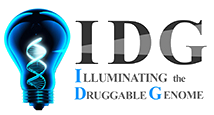Drug results: 2
| mercaptopurine | An antimetabolite antineoplastic agent with immunosuppressant properties. It interferes with nucleic acid synthesis by inhibiting purine metabolism and is used, usually in combination with other drugs, in the treatment of or in remission maintenance programs for leukemia. |
|
| azathioprine | Azathioprine is an inactive pro-drug of 6-mercaptopurine (6-MP), which acts as a purine antagonist but requires cellular uptake and intracellular anabolism to thioguanine nucleotides (TGNs) for immunosuppression. TGNs and other metabolites (e.g. 6-methylmercaptopurine ribonucleotides) inhibit de novo purine synthesis and purine nucleotide interconversions. The TGNs are also incorporated into nucleic acids and this contributes to the immunosuppressive effects of the medicinal product. Other potential mechanisms of azathioprine include the inhibition of many pathways in nucleic acid biosynthesis, hence preventing proliferation and activity of cells involved in the immune response (B and T lymphocytes). Because of these mechanisms, the therapeutic effect of azathioprine may be evident only after several weeks or months of treatment. Unlike 6-MP, the activity of the azathioprine metabolite 1-methyl-4-nitro-5-thioimidazole has not been clearly determined. However, compared with 6-MP it appears to modify the activity of azathioprine in several systems. According to the Fourth Annual Report on Carcinogens (NTP 85-002, 1985), this substance has been listed as a known carcinogen. (Merck Index, 11th ed) |
|



